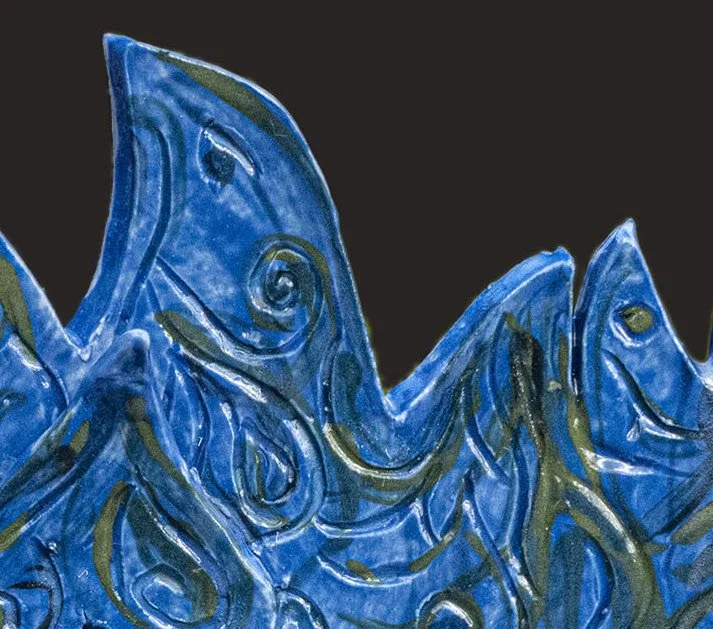Lost at Sea – A Lullaby for Her
Detail from Lullaby to Her
In 2023 the annual International Gender and Medieval Studies Conference invited speakers who were engaged in arts practices to show their work in a gallery space at Birkbeck, University of London.
Lost at Sea - Lullaby for Her
In 1493, shortly after the Edict of Expulsion forced Spain’s Jewish community to migrate, the Rabbi and historian, Judah Hayyat, set off on a voyage across the Mediterranean hoping to find safe harbour on North African shores. Hayyat’s description of this perilous, three-month voyage is one of the only extant, first-hand accounts of a migratory sea journey made on the Mediterranean at this time. The journey was to last three months as the boat was plundered by pirates, suffered a catastrophic outbreak of the plague and was refused disembarkation at every port. Judah’s wife, alongside many others, perished. However, in an otherwise detailed narrative, she receives but one line of text and is not named.
There are many similarities between Hayyat’s voyage and the voyages undertaken by refugees today. One such similarity is the absence of gender-specific reports on the migration experience. According to the United Nations International Organisation for Migration (UNIOM), women account for 47% of those of who undertake such journeys, yet their experiences are grossly underrepresented. UNIOM has stated that this ongoing crisis can no longer be ignored and gender specificity across the migration cycle must be of paramount importance.
This ceramic memorial below is dedicated to all the un-named migrating women who lose their lives at sea. We lay them to rest with a lullaby in Ladino, a medieval Judeo-Spanish dialect. The lullaby is sung by Dina Ipavic.
Click PLAY below to hear Dina sing Noches, Noches in Ladino.

